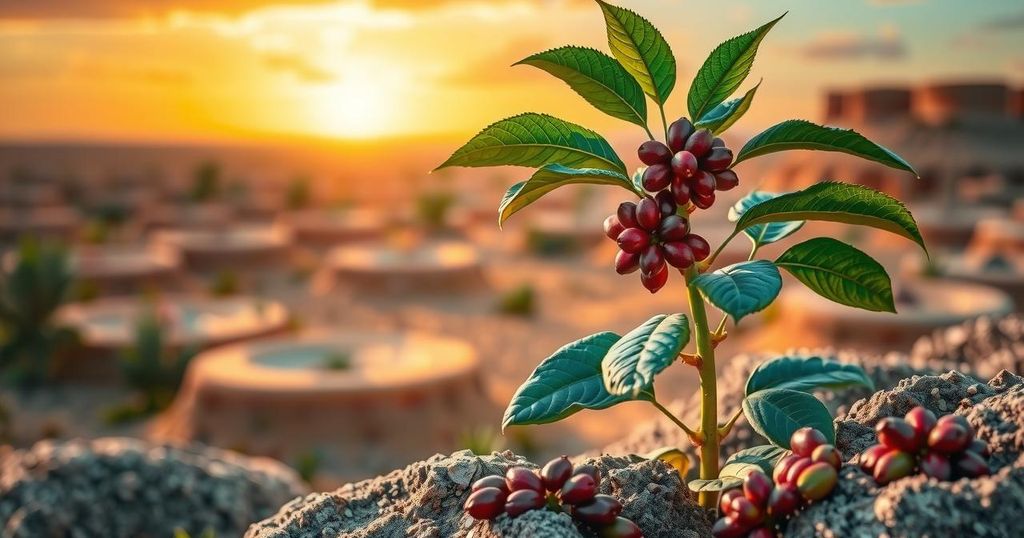As climate change negatively impacts coffee production globally, South Sudan is testing excelsa coffee, a resilient species that may endure drought and heat better than traditional crops. Farmers like Catherine Bashiama hope that cultivating excelsa will alleviate poverty and provide financial independence, as the country regains its coffee-growing heritage and addresses infrastructure challenges amidst ongoing instability.
Amid increasing challenges posed by climate change to traditional coffee crops, South Sudan is exploring the potential of excelsa coffee, a species that may better withstand extreme weather conditions. Known for its resilience against drought and pests, excelsa is generating interest among local farmers like Catherine Bashiama, who aspires to uplift her family through cultivation. Bashiama highlights her goal of investing in her children’s education, hoping that excelsa can lead the way out of poverty.
Excelsa coffee, which has been cultivated in South Sudan for over a century, is currently gaining traction as leading coffee producers face adverse climate effects. Estimates indicate a potential 12% decline in Brazil’s coffee harvest, contributing to record-high prices. Aaron Davis, an expert from the Royal Botanic Gardens, comments, “What history shows us is that sometimes the world doesn’t give you a choice,” emphasizing the urgent need for viable alternatives.
Despite its promise, excelsa coffee accounts for less than 1% of the global market, trailing behind arabica and robusta varieties. Experts argue that scalable production of excelsa is necessary to address the market’s challenges brought on by climate change. The species is uniquely suited for extreme conditions, with deep roots and thick leaves, allowing it to thrive where other coffees struggle.
In conclusion, the cultivation of excelsa coffee in South Sudan may offer a viable solution to the challenges wrought by climate change on traditional coffee crops. As farmers like Catherine Bashiama perceive this as a pathway to better livelihoods and community sustainability, the necessary infrastructure, investment, and political stability must be prioritized. The cultivation of excelsa could potentially empower the local economy and stabilize the livelihoods of many, requiring a commitment to long-term growth and support.
Original Source: apnews.com






